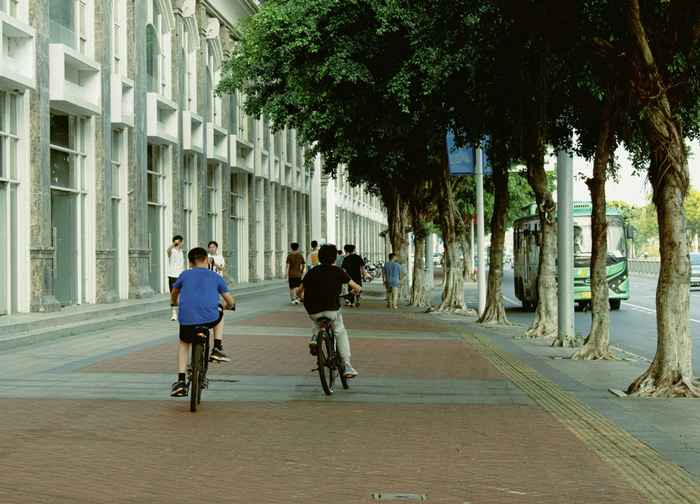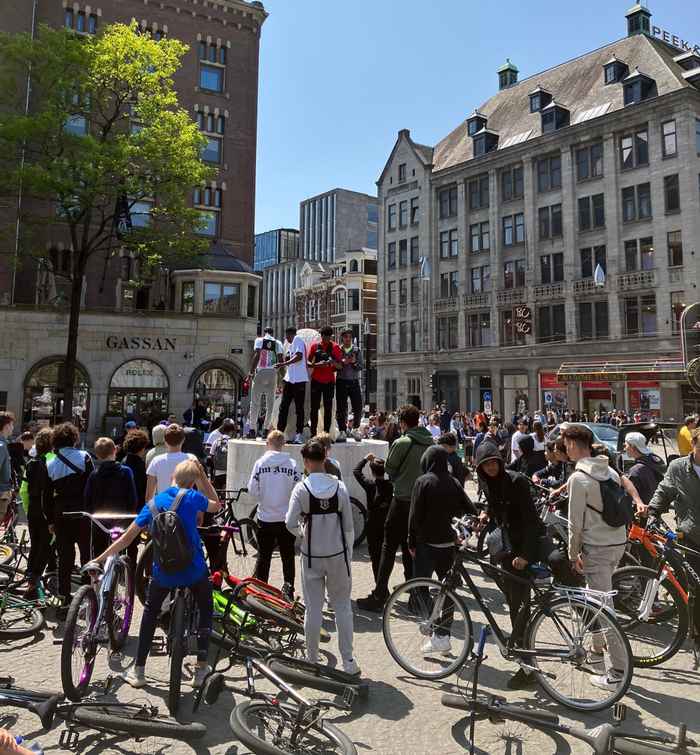More than just transport: how cycling connects children to the neighbourhood
15 November 2024

Jonne Silonsaari, researcher in Geography, Urban Planning and International Development Studies, how children’s cycling and mobility are being promoted in different places. But what exactly is mobility? 'Mobility is about being able to move from A to B, but it is also about the social and cultural interactions that occur during that journey', Silonsaari explains.
From bicycle bus to Bike Kitchen
Together with civic organisations, municipalities and community groups in Finland and Amsterdam, Silonsaari examined several cycling initiatives. One example is the 'bicycle bus', where groups of children cycle to school together via a fixed route. 'In the beginning, children found this very entertaining. But once they knew the route, they actually wanted to deviate from it. In this way, children soon learn to make decisions independently', Silonsaari points out.

'By communities that people really connect with, children won’t see cycling as a forced activity, but as something they can make their own.Jonne Silonsaari
Another initiative is the Bike Kitchen, a place where young people learn to repair their bikes themselves. Silonsaari surveyed the branche in Amsterdam-Zuidoost. The location in Zuidoost is special because fewer children cycle here than in other, wealthier parts of the city. 'Estimates show that almost a quarter of children in the Bijlmer neighbourhood cannot ride a bicycle. At the Bike Kitchen, you will not only learn to fix your bike, but also create a culture of cycling and autonomy.'
Stunted subculture
Silonsaari also studied a subculture within cycling called 'Bike Life'. This involves young people riding special bikes to perform stunts, but it is also about togetherness and a sense of belonging to a group. 'A group can consist of up to 150 children, and they take over large parts of the city centre.’, Silonsaari explains. 'What's interesting is how cycling projects try to use this hobby to form a strong cycling culture.'
The journey changes
Silonsaari stresses that cycling gives children more freedom. 'When children travel by bicycle instead of being brought somewhere by car, the journey changes. They go from school to the playground, visit a friend on the way and quickly drop by the supermarket. This promotes their independence and helps them build friendships in the neighbourhood.'
The car is the real culprit
While there have been a lot of negative news items about cycling recently, such as accidents involving fatbikes, Silonsaari actually sees opportunities. The government wants to ban fatbikes for young people because they go too fast, but Silonsaari thinks the problem is not just with the bike. ‘Accidents with fatbikes are of course a real problem, but it is important to ask: are we problematising the fatbikes or the riding style of the rider? In terms of speed, safety and space, the biggest problem is still the car.’
Shift in focus
Silonsaari has an important message for municipalities: when promoting cycling, do not just focus on the individual, but involve the whole community. 'Cycling offers not only health and environmental benefits, but also opportunities for social growth and connection', he stresses. 'By involving schools, sports clubs, churches, or other communities that people really connect with, children won’t see cycling as a forced activity, but as something they can make their own.’
